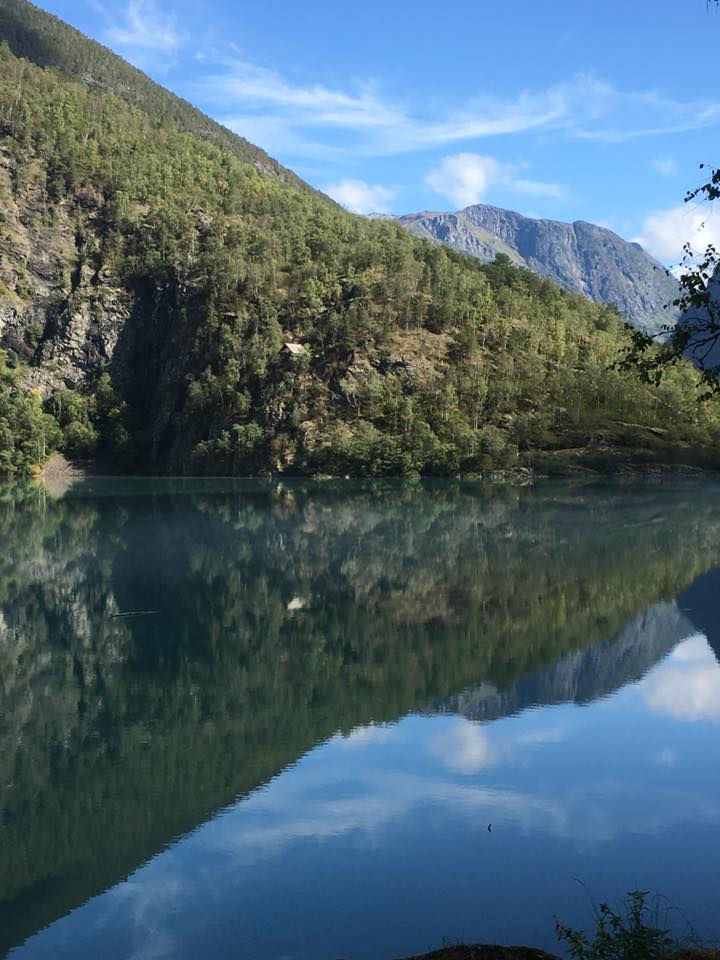My wife and I recently spent two weeks in Norway and for part of it we explored the 125 mile long Sognefjord that penetrates into the heart of the country.
One day we crossed the fjord by ferry from the picturesque village of Solvorn, nestled in a glacial bowl of lush green between sheer cliffs and forests, to the equally attractive village of Urnes, set amid hay fields and fruit orchards under a huge forested mountain.
Urnes is famous for its wooden stave church, the oldest in Norway, dating from the 12th century and full of ornate, Viking influenced carvings.
As we proceeded north on a single lane road past waterfalls and quaint farmhouses and barns we came to Skjollen, a village located at the furthest point of the Sognefjord, and ringed with majestic mountains.
Turning east we passed a beautiful milky lake and noticed a hut high up on the wooded hillside opposite.
It was there that the great 20th century philosopher Ludwig Wittgenstein lived in the winter of 1913 and wrote his masterpiece Tractatus Logico-Philosophicus.
Don’t be put off by its intimidating title.
In his writing he approaches the place where erudite philosophy and deep mysticism meet. By way of logic, reason and mathematics Wittgenstein arrives at that place of unitive silence beyond thought or calculation.
In my experience those who have reached that deep place of awareness exhibit qualities of humility, amazement and joy. So too Wittgenstein. He wrote,
“Never stay up on the barren heights of cleverness, but come down onto the green pastures of silliness.”
The giggling gurus were right, life is too serious to be taken seriously. Serious in the sense of important, an opportunity not to be missed. We are invited to embrace its horror and its beauty in equal measure and refuse to be clever about it. It is the childlike soul, as Jesus reminded us, that shall enter the kingdom of wholeness.
Much of the spiritual path, and life in general, is a preparation for death. But death is not a something to fear but a concept to understand. Again, Wittgenstein offers advice that is distinctively in the unitive tradition:
“Death is not an event in life: we do not live to experience death. If we take eternity to mean not infinite temporal duration but timelessness, then eternal life belongs to those who live in the present.”
All we have, in brutally honest terms, is this moment, this present. But the good news is that this present moment is all we need. In it we are choicelessly free to be the compassionate,silly, unsullied, shining men and women that we are.
Wittgenstein’s hut

